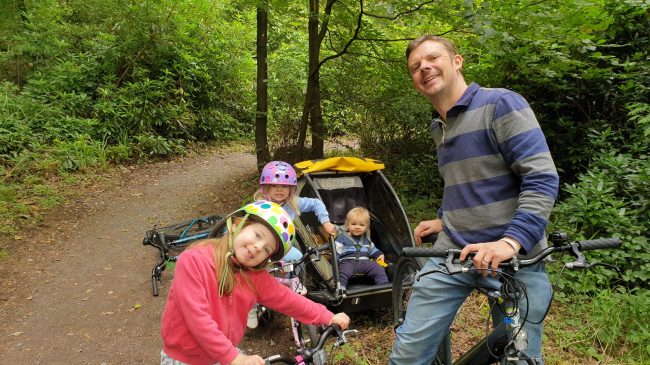Parents’ concerns about cost of activities for children during the summer holidays revealed
A new survey by the Royal College of Occupational Therapists (RCOT) has found that more than three-quarters (76%) of those with a child aged 4–12 in the East of England who play with their child spend more money on playing with their child during the summer holidays than at other times of the year.
[tta_listen_btn]This is putting a lot of pressure on parents and, combined with time pressures, is causing parents to worry. The organisation has published new, free occupational therapy-led advice with easy, no-cost ideas for parents to play with their children over the summer break – and beyond – that will support their development.
Play helps children enjoy life more and can also be used as a way to teach them other skills. Occupational therapists work with children and families, either individually or in groups, to support them to do the things they want and need to do, and offer practical solutions to everyday challenges.
Barriers to play
According to the poll, almost half (44%) of parents with a child aged 12 or under in the East of England aren’t able to find the time to play with their child every day. On average, parents in the East of England are only playing with their child on five out of seven days a week. And more than three in five (63%) parents who play with their child on a weekly basis would like to spend more time playing with their child.
Parents in the East of England are mostly prevented from playing with their child because of housework or chores (60%).
One in 25 (4%) parents in the UK say they’re prevented from playing because of their child’s physical or mental health or disability. Research shows that play is essential for all children’s health, wellbeing and development, and that children who are usually considered less able to play, and their parents or carers, can hugely benefit from occupational therapy.
The top three things parents in the East of England do when playing with their child are:
- playing in the playground (61%)
- arts and crafts (56%)
- playing ball games or other sports (51%)
Dr Sally Payne, RCOT Professional Adviser for children, young people, and families, says:
‘We all want to spend more time playing with our children, but it can be challenging – especially finding enough time or money to play. When there isn’t time, focus on quality instead of quantity. Even a few minutes a day can help your child’s development, and there are plenty of things you can do that don’t cost a thing: jumping in puddles, building a den, or playing with a ball together outside.
‘Play is a fundamental right for children and young people. It helps children feel not only happy and fulfilled, but also part of a community. It helps them grow and develop whilst learning about themselves and the world around them. It develops a huge range of skills that they’ll continue using throughout their lives, including taking turns, working together, creativity, problem-solving, and using imagination.
‘Playing is also important for its own sake – every child should be able to play in a way that is fun for them. Play looks different for every child, but is of equal importance to every child, no matter their situation or abilities. As occupational therapists, we help children with developmental difficulties and disabilities to be able to play, so that all children can achieve their right to play.’
Benefits of play
RCOT new, free occupational therapy-led advice to help parents make the most of their time playing with their children over the summer break – and beyond – that will support their development. It includes:
· Being playful, laughing and getting lost in the moment are important for children’s health and wellbeing, helping them manage the stress and pressures of everyday life. Try dressing up, playing hide-and-seek, or splashing in puddles.
· Giving children a sense of control over their play will help build their confidence and self-esteem. Allow children to take the lead when playing and avoid imposing structure.
· Being outdoors helps boost children’s mood and can have a calming effect. Try drawing with chalks on the pavement or having a pretend picnic.
· Encourage children’s imagination and creativity by using household items and other objects for play – like pots, pans and blankets.
The full list of RCOT’s expert tips for play to support development are available at: rcot.co.uk/play.
Occupational therapy for children
Children’s occupational therapists work in health, social care and education settings, for example hospitals, young offenders’ institutions, and schools. The children they work with often have greater needs, such as neurodivergence, physical disabilities, learning disabilities, or mental health problems. They work with children, young people and their families to provide personalised, practical solutions for a better quality of life.
Parents who feel their child could benefit from occupational therapy should speak to their GP, childcare/education provider or visit rcot.co.uk for help finding an occupational therapist.










